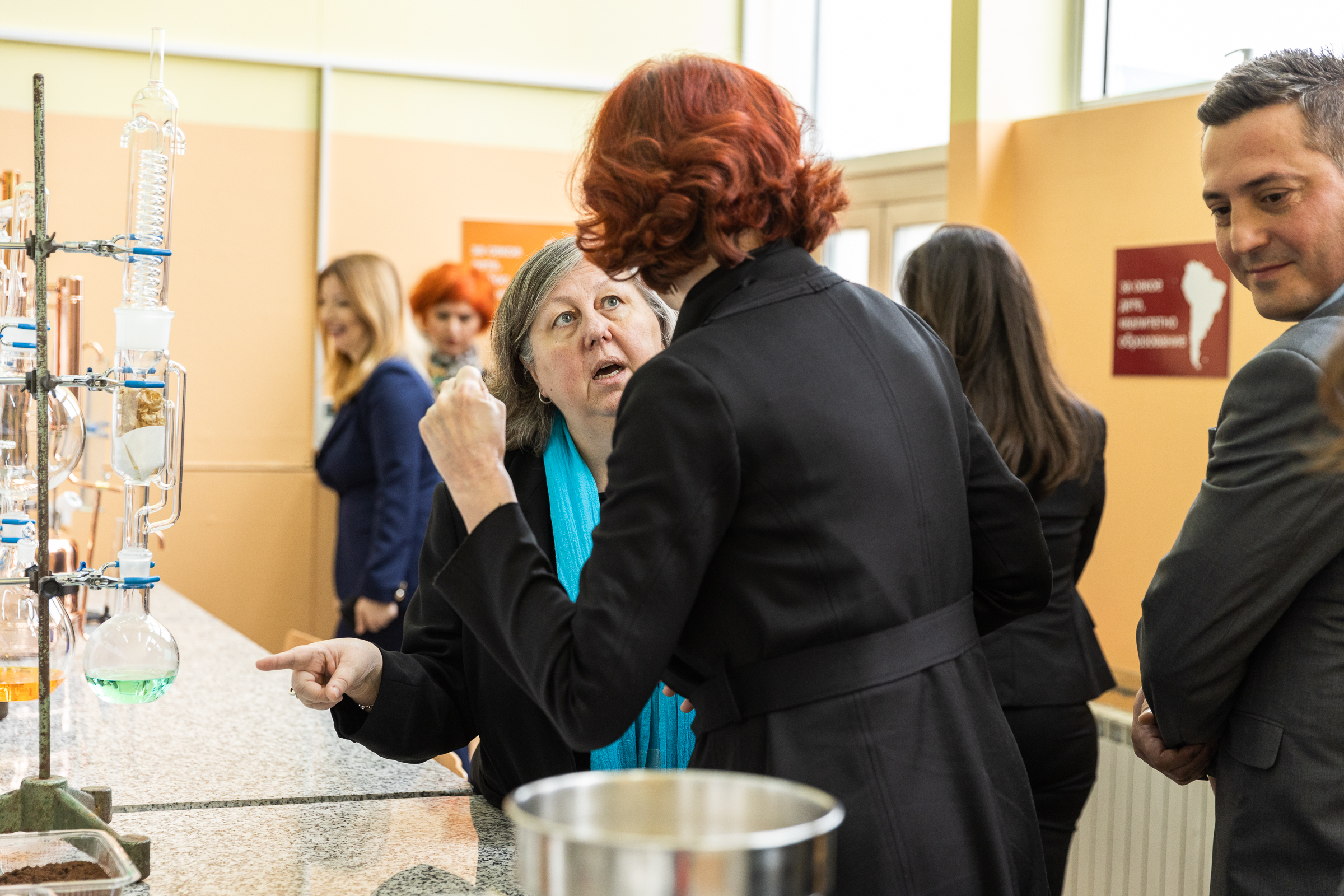Launching the first public BioHacking Laboratory in the City of Skopje
Ahead of the curve
June 7, 2023

The BioTech Laboratory is part of the larger National BioTechnology Initiative aimed at finding solutions for rising environmental challenges.
From earthquakes to floods, and air pollution, the City of Skopje, North Macedonia, has a long history of dealing with environmental challenges. As the city’s population has increased, waste management urgently requires focused attention, robust solutions and sparks of innovation.
Skopje’s citizens have shown remarkable resilience in dealing with these challenges while driving demand for action. Skopje was among the first city in the country to develop a Local Environmental Action Plan and an Air Quality Plan, and has supported numerous environmental activities in schools and large communities.
The city has also invested heavily in expanding public parks, subsidizing energy efficiency and introducing stronger communal inspections. And now, local experts in education, science, entrepreneurship and academia, alongside the private sector, UNDP and UNICEF have joined forces to establish a public BioHacking Laboratory, the first of its kind in the country.

Driving innovation
Bio-waste accounts for 45 percent of all waste produced in the country. Most of that – approximately 95 percent of it – ends up in open landfills and dumpsites, emitting greenhouse gases and contributing to a range of environmental challenges for the local communities. The BioTech Laboratory is now part of the larger National BioTechnology Initiative supported by UNICEF, UNDP and the City of Skopje aimed at finding solutions for the rising environmental challenges.
The BioTech Laboratory was selected from 120 projects supported by the 2021 Green Shark Challenge, a joint UNDP and UNICEF global competition focused on environmental sustainability. The Biohacking Laboratory focuses on reusing and repurposing bio-waste as an entry point to create entrepreneurial opportunities through citizen science while supporting the delivery of science-based educational programmes in schools.
The laboratory, located in the Marie Curie secondary vocational school in Skopje, is a go-to venue for extracurricular activities, clubs and project-based learning in biology and chemistry for primary education and secondary school students. The new public space also enables entrepreneurs and innovators to form new businesses, create employment, drive economic development and foster opportunities for growth out of bio-waste under three distinct pillars:
- Innovation and entrepreneurship
- Education and school engagement
- Public demand

Fostering creativity and education
Much as computer programing became accessible to the general public in the 1970s, the BioTech Laboratory initiative is aligned with national priorities and action plans and aims to make biotechnology science accessible to all. Open laboratories of this kind are referred to as biohacking laboratories and are open to the general public, including students, biotechnology start-ups and science enthusiasts in need of a place to learn, discover or experiment on science and technology-based projects.
The lab launched the first challenge for startups working with biotechnologies to bring new talent into the biohacking laboratory. The closing event of the challenge, Demo Day was attended by 80 participants representing 24 organizations, embassies, private companies and donor organization who listened to 12 innovative solutions working biotechnologies to solve some of the burning environmental issues. The closing ceremony of the Demo Day included the speech of the General Secretary of Skopje and the Deputy Director of the UNDP Regional Bureau for Europe and the CIS, Marina Walter.
Scientists affiliated with the lab are working with 30 companies to transform bio-waste into viable products. The laboratory also held its first teacher training, set-up bio-waste collection points, and seven regional two-day courses in chemistry and technology, agriculture and veterinary science are planned.
In collaboration with the National Vocational Education and Training Center (VET), the lab worked with over 40 teachers to deliver two of eight regional science caravans. The caravans will travel to VET schools that have courses in chemistry and technology and agriculture and veterinary sciences. Teachers will deliver preparatory lectures and experiments and set up bio-waste collection points. Then, in close collaboration with the lead scientists, using the laboratory’s mobile equipment, this bio-waste will be transformed and tested into a useful and viable product.
The collaborative efforts of the City of Skopje, UNDP, and UNICEF have sparked innovative solutions to bio-waste and reignited a collective appetite for experimentation. The opportunities are abundant, and these new initiatives hold immense potential. While established strategies are valuable, breakthrough solutions for environmental challenges require bold innovation. The BioTech Laboratory proudly fosters creative approaches that diverge from the norm and keep us ahead of the curve as we forge a brighter, more sustainable future for all.

 Locations
Locations
